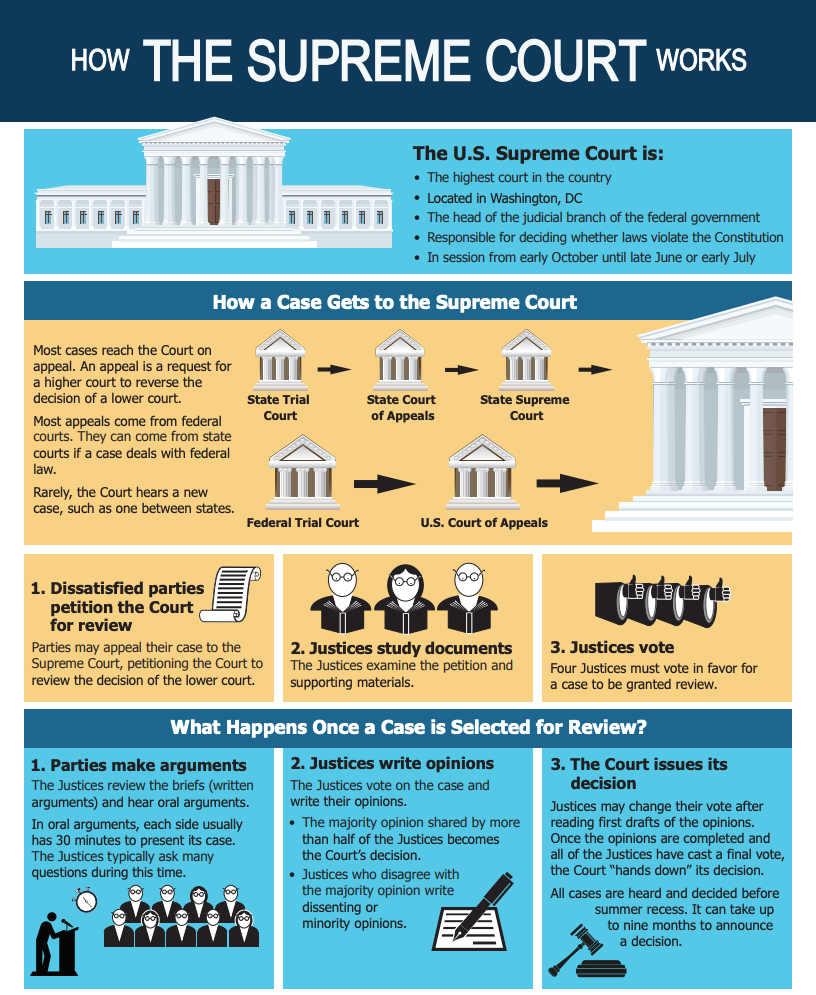Parental Notification For LGBTQ+ Materials In Elementary Schools: Supreme Court Decision Imminent

Table of Contents
The Case at Hand: Florida's Parental Rights in Education Law ("Don't Say Gay" Bill)
Florida's Parental Rights in Education law, often referred to as the "Don't Say Gay" bill, has become the focal point of a national debate on parental notification and LGBTQ+ inclusion in schools. This law mandates parental notification regarding classroom instruction on sexual orientation or gender identity in kindergarten through third grade. Opponents argue it's vague, discriminatory, and harms LGBTQ+ students. Supporters maintain it protects parental rights and allows parents to guide their children's education on sensitive matters.
-
Key provisions of the law: The law requires parental notification before instruction on sexual orientation or gender identity, regardless of the context. It also allows parents to sue schools if they believe the law is violated.
-
Examples of materials potentially affected: The law's ambiguity means a wide range of materials could be affected, including books with LGBTQ+ characters, discussions about family structures, and even classroom lessons on diversity and inclusion.
-
Legal challenges: The law faces significant legal challenges based on First Amendment rights (free speech and association) and arguments that it discriminates against LGBTQ+ students and families. These challenges argue the law restricts educators' ability to create inclusive learning environments and violates students' right to information.
Parental Rights vs. Students' Rights and Curriculum Choices
This case highlights the inherent conflict between parental rights in shaping their children's education and students' rights to access information and inclusive learning environments. The debate centers on who holds the ultimate authority to determine what children are exposed to in school.
-
Arguments supporting parental rights: Proponents emphasize the importance of parental involvement and the right of parents to decide what their children are exposed to, particularly on sensitive topics like sexuality and gender identity. They advocate for transparency and communication between schools and parents.
-
Arguments emphasizing students' rights: Counterarguments emphasize students' right to access a diverse range of perspectives and age-appropriate information, arguing that excluding LGBTQ+ themes limits learning and creates an unwelcoming environment for LGBTQ+ students. They highlight the potential for stigmatization and harm caused by limiting access to inclusive materials.
-
The role of school boards and educators: School boards and educators are caught in the middle, needing to balance parental concerns with the legal and ethical responsibilities to provide a safe and inclusive learning environment for all students. They must navigate these competing interests while adhering to legal requirements and educational best practices.
Potential Supreme Court Ruling and Its Implications
The Supreme Court's decision will have far-reaching consequences, setting a precedent for similar laws nationwide. Two main scenarios emerge:
-
Scenario 1: Upholding Florida's law: This outcome could embolden other states to enact similar legislation, potentially leading to a patchwork of laws across the country that restrict LGBTQ+ inclusive education. It would significantly impact school library policies and book selection processes.
-
Scenario 2: Striking down Florida's law: This could lead to increased legal challenges to similar laws in other states and strengthen the argument for LGBTQ+ inclusion in education. It might, however, also fuel the debate on parental involvement and oversight of school curricula.
-
Impact on LGBTQ+ students and families: The ruling will profoundly impact LGBTQ+ students and their families, potentially influencing their sense of belonging, safety, and well-being in school.
-
Effect on school library policies: Regardless of the outcome, school library policies and book selection processes are likely to undergo significant scrutiny and potential revisions.
The First Amendment and Free Speech Considerations
The First Amendment plays a crucial role in this debate. Both sides utilize First Amendment arguments: proponents of parental notification laws often frame them as protecting parental free speech rights to direct their children's education, while opponents argue the laws violate students' and educators' free speech rights and the right to access information.
-
How both sides utilize First Amendment arguments: The central question becomes whether the state's interest in parental notification outweighs the rights of educators to teach and students to learn about a wide range of topics.
-
Potential limitations on free speech in educational settings: The Supreme Court must balance free speech rights with the state's interest in regulating public schools and ensuring a safe and orderly learning environment.
-
The role of the Supreme Court: The Court's interpretation of the First Amendment in this context will significantly shape future legal challenges to similar legislation.
The Broader Context: National Trends in Parental Involvement in Education
This case reflects a broader national conversation around parental involvement and its role in shaping education. Political polarization has intensified this debate, with differing views on the appropriate level of parental control and the role of schools in addressing sensitive topics.
-
Recent trends in parental activism: Recent years have witnessed a rise in parental activism and engagement in school board meetings and policy debates.
-
The influence of political polarization: The issue has become highly politicized, exacerbating divisions and making constructive dialogue more challenging.
-
Importance of open communication: Fostering open and respectful communication between schools, parents, and students is crucial to navigate these complex issues effectively.
Conclusion
The Supreme Court's decision on parental notification regarding LGBTQ+ materials in elementary schools will have far-reaching consequences for schools, parents, and students nationwide. The ruling will set a precedent for the balance between parental rights, student rights, and the role of schools in providing a diverse and inclusive learning environment. The debate highlights the complex interplay between legal rights, educational policy, and societal values. Understanding the nuances of parental notification for LGBTQ+ materials is critical to shaping future educational policies.
Call to Action: Stay informed about the upcoming Supreme Court ruling on parental notification laws and LGBTQ+ materials in elementary schools. Engage in respectful dialogue about this crucial issue to promote understanding and contribute to the ongoing conversation surrounding parental rights in education. Understanding the implications of parental notification for LGBTQ+ materials is crucial for shaping a future where all students feel safe, supported, and included.

Featured Posts
-
 Tqryr Asear Alktakyt Alywmyt Fy Msr Alathnyn 14 Abryl 2025
Apr 23, 2025
Tqryr Asear Alktakyt Alywmyt Fy Msr Alathnyn 14 Abryl 2025
Apr 23, 2025 -
 Trump Meets With Walmart And Target Leaders On Rising Tariffs
Apr 23, 2025
Trump Meets With Walmart And Target Leaders On Rising Tariffs
Apr 23, 2025 -
 Record Setting Steals Milwaukees Nine Bases In First Four Innings
Apr 23, 2025
Record Setting Steals Milwaukees Nine Bases In First Four Innings
Apr 23, 2025 -
 Emballages Reutilisables Hipli Une Alternative Durable Aux Colis Jetables
Apr 23, 2025
Emballages Reutilisables Hipli Une Alternative Durable Aux Colis Jetables
Apr 23, 2025 -
 Pazartesi Dizileri 17 Subat Tam Tv Programi Rehberi
Apr 23, 2025
Pazartesi Dizileri 17 Subat Tam Tv Programi Rehberi
Apr 23, 2025
